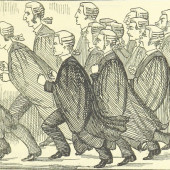Our website uses cookies so we can analyse our site usage and give you the best experience. Click "Accept" if you’re happy with this, or click "More" for information about cookies on our site, how to opt out, and how to disable cookies altogether.
We respect your Do Not Track preference.

We get it. As a lawyer, one of the least fun things about your job is chasing the money. Sometimes people just don’t cough up for the service you provide.
But this does not mean you can refuse to cough up personal information if it is requested by a client (or ex-client) under principle 6 of the Privacy Act (even if they owe you money for their legal bill). By way of case law on point, see CBN v McKenzie Associates.
The old idea of the “solicitor’s lien” – the right of a lawyer to retain a client’s property deposited with them, including crucial and original documents until the bill was paid – does not override principle 6 of the Privacy Act. Under principle 6, an individual is entitled to request a copy of their personal information held by an agency.
If you hold personal information about an individual, and that individual requests it, you have obligations under the Privacy Act to respond to that request. Check out this handy flow chart.
You can charge them for the provision of information … BUT … that charge has to be reasonable (it can’t just be the amount of their outstanding bill – sorry – the Privacy Act says so).
Section 35(2) says what a private sector agency can’t charge for:
• providing assistance to a requester;
• the making of the request for information; or
• processing the request, including deciding if the request is to be granted and, if so, in what manner.
Section 35(3) says what a private sector agency can charge for:
• making the information available (copying/collating/sending) in compliance with the request.
We think this is a really helpful guideline on charging.
One of the best ways to ensure you are making a reasonable charge is to get a quote from a copy shop for a job. It’s likely that a quote from a copy shop will be a reasonable charge for making information available, as it will be a fair reflection of the amount of paper and time involved in the job.
And don’t worry. You don’t have to provide the information until you have, at least, received payment for the job of copying and sending the file.
Back